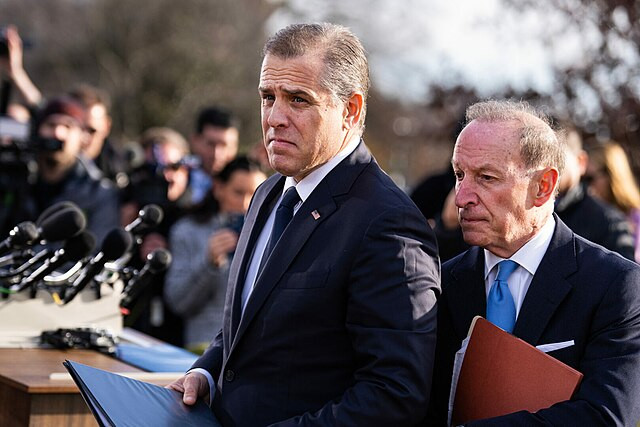Hunter Biden's controversial laptop, once dismissed by many media outlets and political figures as Russian disinformation, has been formally entered into evidence by the FBI in his ongoing federal gun crime trial. The laptop, filled with videos and photos of drug use, sex acts, and sensitive business communications, is now central to the prosecution's efforts to prove that the president's son lied about his drug use on a gun purchase form.
The laptop's authenticity was initially rejected when the New York Post first reported it in the lead-up to the 2020 presidential election. Twitter, citing a violation of its terms of service on hacked materials, locked the New York Post out of its account for weeks and prevented users from sharing the story. However, several news outlets have since verified the laptop's contents, marking a significant media embarrassment.
Emma-Jo Morris, former New York Post deputy politics editor and the lead reporter on the initial story, expressed her feelings of vindication as the laptop's contents are now acknowledged. "I thought it was insane, and almost beyond parody what I was watching," Morris told Fox News Digital. "It's kind of funny now to watch them all have to walk back this kind of crazy, outrageous claim that they had all made."
One of the most notable media exchanges occurred when former President Donald Trump discussed the laptop on CBS' "60 Minutes." Host Lesley Stahl repeatedly insisted that the laptop could not be verified, a stance CBS News reversed in 2022 after confirming its legitimacy through forensic investigation. The admission has led to renewed criticism of Stahl, with calls for her to apologize.
The initial dismissal of the laptop story by major media outlets and political figures drew widespread criticism. Symone Sanders-Townsend, then a Biden campaign spokeswoman, bluntly labeled the story as "Russian misinformation" on MSNBC. CNN, caught on tape spiking the story, justified their skepticism by citing Rudy Giuliani's involvement, as he provided the materials to the New York Post.
The controversy has resurfaced as Hunter Biden faces charges of making false statements regarding his drug use on a gun purchase form, among other charges. The trial has brought renewed focus to the laptop and its contents, which include evidence of Hunter's business dealings and personal misconduct.
Meanwhile, Kathleen Buhle, Hunter's ex-wife, has been drawn into the spotlight during the trial. Buhle, who divorced Hunter in 2017, testified under subpoena, recounting the deterioration of their marriage amid Hunter's escalating drug addiction. Her testimony revealed personal and painful details, highlighting the family's internal struggles.
The Bidens' relationship with Buhle has been strained, particularly after details of Hunter's behavior became public through her divorce filings. The tension was exacerbated by Buhle's memoir, which focused on her marriage and Hunter's addictions. Friends of Buhle argue that the Bidens appeared more concerned with the public revelation of Hunter's actions than with the actions themselves.
During the trial, Hunter has had strong support from his family and friends, contrasting Buhle's solitary appearance in court. This dynamic underscores the deep divisions within the Biden family, exacerbated by public and legal scrutiny.
The trial has also highlighted Hunter's complex relationship with Hallie Biden, his brother Beau's widow. Hallie testified that her romantic relationship with Hunter began while he was still married to Buhle, adding another layer of personal drama to the proceedings.
As the trial continues, the laptop remains a focal point, with its contents scrutinized for evidence of Hunter's alleged misconduct. The media's initial dismissal and subsequent acknowledgment of the laptop's legitimacy serve as a stark reminder of the complex interplay between journalism, politics, and public perception.






